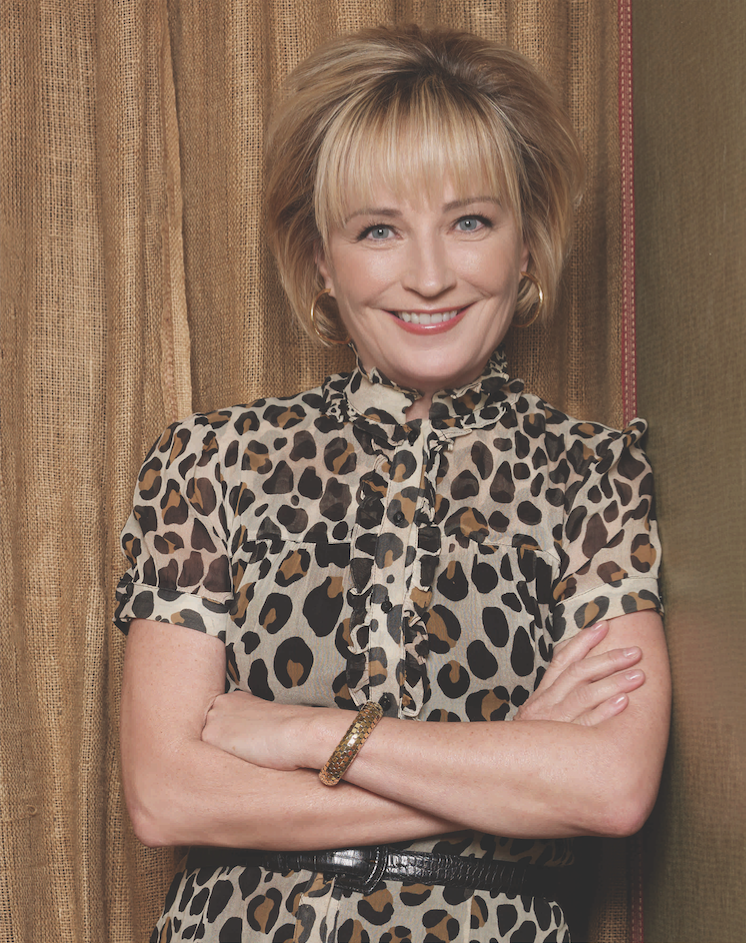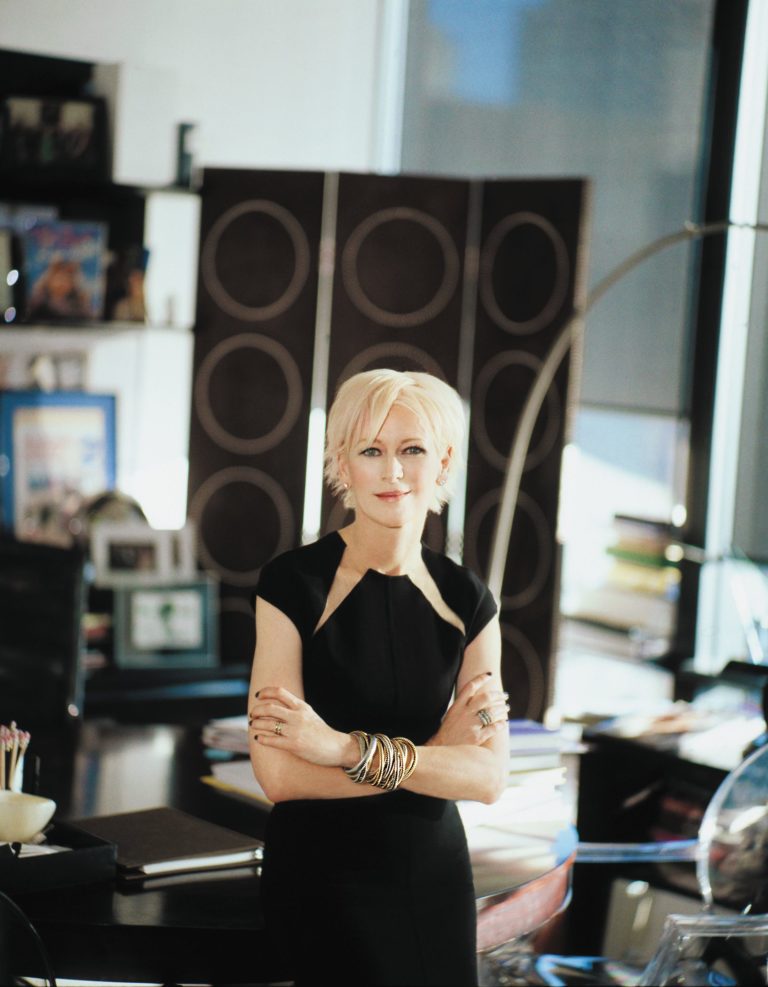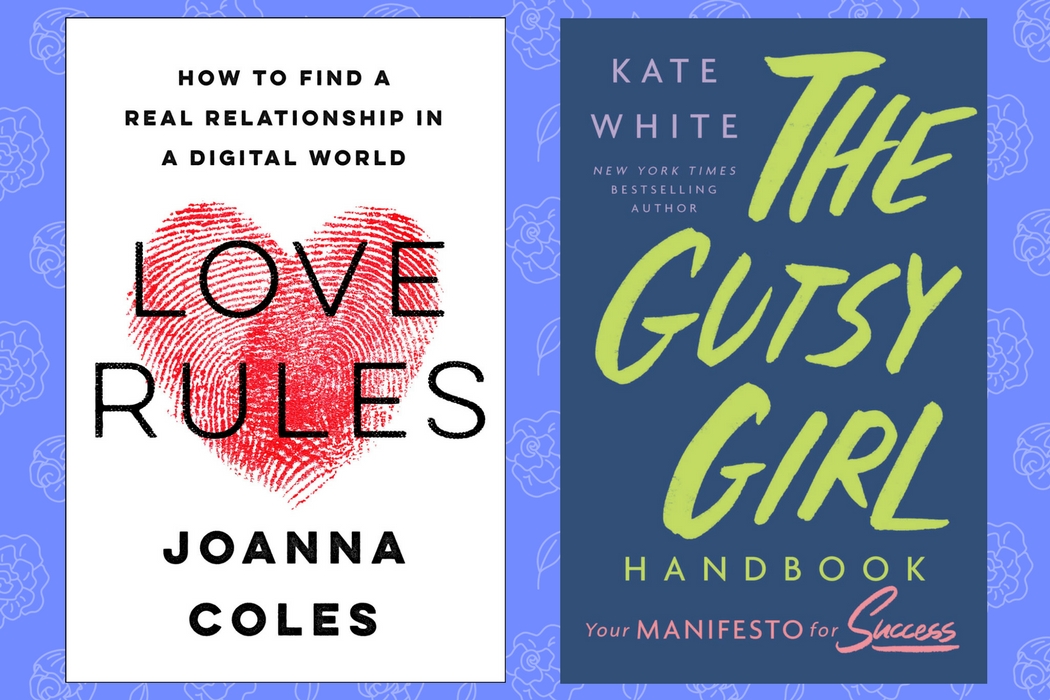Former “Cosmopolitan” editors-in-chief share their secrets to careers and romance in two new books this April.
By Ann Mayhew
This April, two former editors-in-chief of “Cosmopolitan” magazine will release new self-help titles, effectively covering the two topics “Cosmo” readers are most concerned about: love and work. Kate White, who led the magazine for fourteen years after Helen Gurley Brown (with a brief stint by Bonnie Fuller in-between the two), has updated her “gutsy girl” philosophy with “The Gutsy Girl Handbook: Your Manifesto for Success.” Joanna Coles, freshly out from “Cosmopolitan,” offers advice on finding love in “Love Rules: How to Find a Real Relationship in the Digital World.”
When Kate White took over the role of editor-in-chief of “Cosmo” in 1998, she was filling some very large shoes. The infamous Brown had taken a bland literary magazine that had been around since the 1800s and turned it into a powerhouse—and somewhat scandalous—magazine for young women in the 1960s. White had the immense task of ushering this magazine into the 21st century.

The Gutsy Girl Handbook: Your Manifesto for Success by Kate White (Grand Central Life & Style, out April 3)
If anyone is qualified to share career advice with women, it’s White. By the time she left the magazine, “Cosmo” had been the number one ranked magazine in its category all fourteen years she was there, outselling its nearest competitor by a million copies, and after White took her position as EIC, circulation increased by 30 percent. White also gets credited for introducing more career advice into the magazine as young women became more prominent in the workplace. “The Gutsy Girl Handbook” is peppered with anecdotes from White’s own experience, as well as those from other successful women such as Julia Landauer of NASCAR and Jen Furmaniak of JB Talent, backing up her advice.
In “Gutsy Girl,” White writes that women tend to be “good girls”—more submissive, more polite, safer—and this inhibits us in our careers. Women need to learn how to be gutsier, which means taking more risks and brainstorming bolder ideas. White takes readers through generating fresh ideas, building a brand, dressing for success, negotiating and other ways to be bigger, bolder, and gutsier in ways that are applicable to all industries.
The book is best for women midway into their careers, both because of content (little of the book is written for the entry-level woman, and there is an entire section on how to be a good boss) and delivery. Millennials may not connect to the “gutsy girl” versus “good girl” language or the existence of such a dichotomy. (Do we use the word “gutsy” anymore? Isn’t “good girl” a little condescending?) The book speaks to women who, well, were probably reading “Cosmo” in early aughts, right when White was at the helm.
While White acknowledges systemic sexism in male-dominated workplaces, there’s also a sense of how to join the “boy’s club” in the book. Practical? Absolutely. What’s expected in a self-help title? Perhaps. But, I speculate whether younger readers may be more interested in upsetting the status quo than simply figuring out how to make do within. Despite our current environment of “Me Too” and “Time’s Up,” “Gutsy Girl” only offers a small section on sexual harassment in the workplace, nestled among workplace stressors.
In 2012, White took her own advice and made one of her gutsiest decisions yet—she quit her very successful job at “Cosmo” to pursue her work as a writer and speaker. In addition to career advice for women, White also writes mystery thriller novels.
When White left, Coles took her place. One of Coles’ main goals was to bring the hugely successful magazine into the digital age, with a focus on increasing its online presence, so it’s no surprise that her book explains how to find love while navigating our technology-infatuated society.

Love Rules: How to Find a Real Relationship in a Digital World by Joanna Coles (Harper, out April 10)
The result, “Love Rules,” is an inspiring and empowering guide to finding a healthy romantic relationship. Inspired by 2009’s “Food Rules” by Michael Pollan, a dieting analogy runs throughout the book alongside a sincere concern for the readers’ happiness. A theme of “dieting” is unsurprising, but certainly timely (Whole30, anyone?), cleanly applied to the topic at hand—though arguably shallow—and effective at leading readers to more profound content, much like “Cosmo’s” sensationalized cover headlines.
While “Love Rules” promises to impart “love hacks,” the book is more fleshed out than this click-bait wording implies. Like any good self-help title, it spells out specific steps the reader may take in their self-help journey—which in this case, generally involves asking questions of oneself to identify desires, history, and areas of improvement—and includes expert input and real-life examples. “Love Rules” is also eloquently written, like any stimulating general nonfiction book. This results in the ideal self-help experience: tangible steps to take, and the inspiration to take those steps.
As a “Cosmo” reader, I find this reflects the magazine’s pages while Coles was in charge. While maintaining the topics readers were demonstrably most interested in—love and work, just as under White’s leadership—an overall embrace of feminism was undeniable, and articles on politics, abortion, and other progressive social issues and current events were not uncommon nestled alongside how-tos on steamy sex. This created a well-rounded reading experience that was undoubtedly lighter and more mainstream than “BUST” or “Bitch,” yet still went beyond the scandalous headlines “Cosmo” is best known for.
Reading this book, it’s no secret that Coles is courting the same audience she just left a year and a half ago. She acknowledges her use of he/she and his/her throughout the book, but points out that the advice could be applied to any combination of pronouns. However, this reading experience may isolate queer romantic partners, much as the magazine itself. “Love Rules” has undoubtedly dated itself in its quest to connect: references to specific dating apps and websites, plus the occasional usage of the phrase “Netflix and chill,” will necessitate frequent updates if this book is to stay in print.
Speaking to Adweek in 2012 (right as she was transitioning from “Marie Claire” to “Cosmo”), Coles—who now works as the Chief Content Officer for Hearst Magazines— reflected on what aspects of Helen Gurley Brown’s “Cosmopolitan” she planned to revive: “I want to bring back the psychological climax I would feel having read an issue. I would literally throw it across the room and think, ‘My life starts now.’”
This desire to create a motivational reading experience clearly did not leave Coles when she left “Cosmopolitan,” and has translated easily from the glossy pages to a book format. “Love Rules” is a testament to Coles’ familiarity with and passion for her audience.
“The Gutsy Girl Handbook” lacks some of the spark of “Love Rules.” It’s shorter and snappier, more formulaic and less poetic. Content may be driving this difference: one could argue that career women want something concise, though such a statement would be selling “Love Rules” short. It also reflects the writers: “Gutsy Girl” is just one sliver of White’s longstanding brand of career empowerment; “Love Rules” may be just as well calculated, but isn’t part of a demonstrated career of producing romantic self-help books.
The self-help genre sits at a funny place these days. Millennials seem especially interested in the topic, but the term is being replaced with “personal development” and “self-improvement.” And self-improvement is not just found within the pages of a book, though those sales are, if anything, rising—these are the same people watching TED Talks, going to therapists, listening to podcasts, liking inspirational Instagram quotes and generally promoting self-care by encouraging each other to “treat yo self.” (All of which, of course, are all wonderful things to do.) In approaching this review, I admit that I, as a mid-to-late-twentysomething, felt resistance to the idea of reading “self-help” titles, even if they were written by women I admired. Perhaps today—in comparison to the 1980s, or even the early years of Coles’ career—we are surrounded by self-help-like dogma that takes many forms. A book format of this wisdom may seem like a relic to some young readers—like me—but not enough so that you won’t find one of these titles tucked in their tote.
As White and Coles make clear, you can leave “Cosmo,” but it won’t leave you. These women are powered by a passion for empowering women, and have proven you can be radical without scaring away the mainstream. For “Cosmo” readers eager to continue following their “fun, fearless, and female” leaders, look no further. And for those skeptical of the magazine and the women who have run it—perhaps outraged by, again, those sensational headlines and heteronormative-leaning content—these books reveal some of its depth, illuminating the strengths and skills behind the tagline.

Ann Mayhew is The Riveter books editor. Based in Minneapolis, she works in business and historical research at the James J. Hill Center, and as a freelance editor and book reviewer. Her writing has appeared in BUST, Bitch, the Minneapolis Star Tribune, the Rumpus, and more. You can find her on Twitter, Instagram, Goodreads, and at annmayhew.com.




